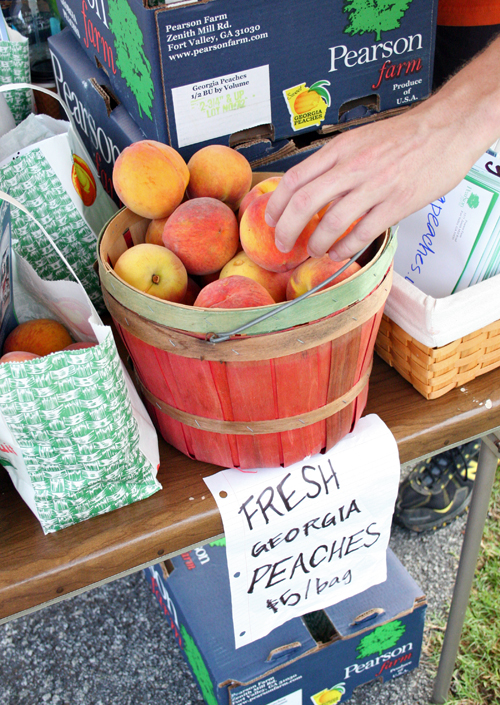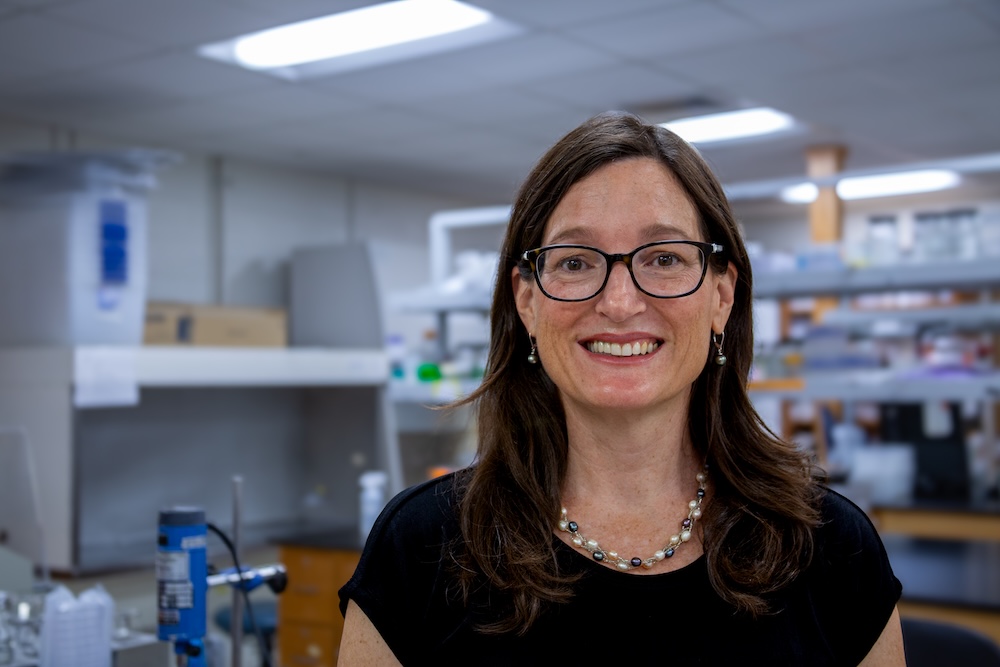The University of Georgia hopes to bring gardening, fresh produce and nutritious food a little closer to the people who need it by first educating its students.
Starting in the fall 2011, a certificate program in local food systems will give UGA undergraduates the opportunity to learn about the policies, production issues and cultural implications involved in producing food at the community level.
“With the slow-food movement, farm-to-school program and documentaries, there’s been a connection made between food, health and community,” said David Berle, a horticulture professor with the UGA College of Agricultural and Environmental Sciences, who’s heading up the program. “There’s a recognition that people in need don’t often get the advantages of fresh food. They’re limited by their budgets as to what they have access to.”
The certificate program is being started by a three-year, $140,000 Higher Education grant from the U.S. Department of Agriculture. Its purpose is to train students for careers that support healthy food choices and lifestyles and counter the rise of obesity and diet-related chronic diseases.
Berle sees these goals being met through building both urban and rural local food systems, educating people on how to make healthy food choices and teaching them to grow some of their own food, which can help them reduce their household food budgets.
Out of the box
“There aren’t many big colleges that offer programs in local food production, and with this program, we’re crossing beyond the traditional agricultural boundaries,” Berle said.
“There are a lot of people with sustainable or organic programs but very few with a multidisciplinary approach. In a sense, it brings recognition to the college of ag, but it also demonstrates that to solve these programs, it’s going to take everyone working together,” he said.
CAES faculty in horticulture, plant pathology, crop and soil science and engineering are teaming up with UGA faculty in geography, family and consumer science, anthropology, ecology, environment and design, English and history to give students a big-picture look at food systems and how they fit into society.
Being multidisciplinary, the program allows students to take classes they usually wouldn’t be allowed to register for. That means an English student could take a horticulture class, or an engineering student could take an ecology course.
“It’s really a chance for students to get outside of their normal box,” Berle said.
Community involvement
One of the program’s core components is community involvement.
“We have the opportunity to marry student-learning projects with a community service need,” said UGA horticulture department head Doug Bailey. “There are a lot of folks who need food.”
Students will work with community gardens in Athens either as part of a class or as an internship. “They would work with some community group on some specific problem and bring their talent and knowledge from different disciplines together,” Berle said.
The grant provides money for internships. “Really, this all fits in with the college’s deans’ promise of doing more service work and study abroad,” he said. “The money would pay students to work for organizations that otherwise couldn’t afford an intern.”
Back to basics
UGA students started an on-campus garden in 2010. The UGArden plot is maintained by about 20 volunteers a week, and 200 students subscribe to its e-mail listserv. Many of these students are not in the College of Agricultural and Environmental Sciences.
Berle incorporated the garden into the grant. “We were trying to capture some of that student energy in the grant,” he said. “These students want to learn how to garden; they’re interested in organic foods.
“A lot of students have been just piecing their own programs together. We’re now trying to provide a pathway for them to follow,” he said.
One of the program’s goals is to give students the tools to later teach communities how to start their own gardens. The UGArden plot does this. The other hope is that communities will invest in canning facilities – or at least classes to teach their residents how to preserve food.
Bailey sees the program as a way to teach students basic life skills.
“Anybody can benefit from these classes,” he said. “In my opinion, everybody should have to take basic classes like HORT 2000, because even if you’re not a horticulture major, you’re probably going to have a yard or garden to take care of someday.”
For more information on the certificate in local food systems, call 706-542-0771, e-mail dberle@uga.edu or visit ugalocalfoodsystems.uga.edu.










